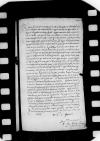Quaternas litteras accepisse videor a Reverendissima Dominatione Vestra, quibus nondum respondi. Quam commendat mihi causam Cornelius von Stadenn ⌊Cornelii a StadenCornelius von Stadenn ⌋ eam, quoad licuit, sum adiuvare conatus. Cum enim eam inclinatam esse viderem, effeci, ut prorogaretur sententia, si forte per concordiam transigi posset, quam, ut inirent partes, ipsa Sigismund I Jagiellon (Zygmunt I) (*1467 – †1548), King of Poland and Grand Duke of Lithuania (1506-1548); Duke of Głogów (Glogau) (1499-1506), Duke of Opava (1501-1506), Governor of Silesia (1504-1506); son of King Kazimierz IV Jagiellon and Elisabeth of Austria⌊regia maiestasSigismund I Jagiellon (Zygmunt I) (*1467 – †1548), King of Poland and Grand Duke of Lithuania (1506-1548); Duke of Głogów (Glogau) (1499-1506), Duke of Opava (1501-1506), Governor of Silesia (1504-1506); son of King Kazimierz IV Jagiellon and Elisabeth of Austria⌋ fuit hortata. Quae quoniam non successit recusante muliere, quam ego tamen admonueram sententiam contra eam latam iri, in gratiam Reverendissimae Dominationis Vestrae hoc tamen obtinui, ut contractus, qui factus in actis scribitur inter Cornelius von Stadenn ⌊CorneliumCornelius von Stadenn ⌋ et Melchiorem, ratus remaneret utque non nisi intra quattuor annorum spatium solvere pecuniam teneretur atque ut tempus curreret a die latae sententiae. Quin etiam postridie, quam lata fuit sententia, ipse mulierem ad Sigismund I Jagiellon (Zygmunt I) (*1467 – †1548), King of Poland and Grand Duke of Lithuania (1506-1548); Duke of Głogów (Glogau) (1499-1506), Duke of Opava (1501-1506), Governor of Silesia (1504-1506); son of King Kazimierz IV Jagiellon and Elisabeth of Austria⌊maiestatem regiamSigismund I Jagiellon (Zygmunt I) (*1467 – †1548), King of Poland and Grand Duke of Lithuania (1506-1548); Duke of Głogów (Glogau) (1499-1506), Duke of Opava (1501-1506), Governor of Silesia (1504-1506); son of King Kazimierz IV Jagiellon and Elisabeth of Austria⌋ introduxi, si quid supplicando efficere posset, verum nihil est prorsus profectum. Iuramentum deferri non posse mulieri sentiebant omnes, cum vel modicum, tum aliquid pro eo facere oporteret, cui iuramentum esset deferendum. Nihil aliud, quam negabat mulier. Adversarius contra proferebat testimonia et quasdam praesumptiones contra eam, proferebat litteras Joachim II of Brandenburg Hector (Joachim II von Hohenzollern) (*1505 – †1571), son of Joachim I Nestor and Elisabeth von Oldenburg, 1524-1534 husband of Duchess Magdalena of Saxony, later (from 1535) of Jadwiga Jagiellon, daughter of King Sigismund I Jagiellon; 1535-1571 Prince-Elector of Brandenburg⌊Ioachimi MarchionisJoachim II of Brandenburg Hector (Joachim II von Hohenzollern) (*1505 – †1571), son of Joachim I Nestor and Elisabeth von Oldenburg, 1524-1534 husband of Duchess Magdalena of Saxony, later (from 1535) of Jadwiga Jagiellon, daughter of King Sigismund I Jagiellon; 1535-1571 Prince-Elector of Brandenburg⌋, Albrecht I von Hohenzollern-Ansbach (Albrecht von Brandenburg) (*1490 – †1568), 1511-1525 Grand Master of the Teutonic Order; from 1525 to his death Duke in Prussia as a liegeman of the Polish king; son of Friedrich V of Brandenburg der Ältere and Sophia Jagiellon (daughter of Casimir IV Jagiellon), nephew of Sigismund I, King of Poland; founder of the university in Königsberg (1544)⌊PrussiaeAlbrecht I von Hohenzollern-Ansbach (Albrecht von Brandenburg) (*1490 – †1568), 1511-1525 Grand Master of the Teutonic Order; from 1525 to his death Duke in Prussia as a liegeman of the Polish king; son of Friedrich V of Brandenburg der Ältere and Sophia Jagiellon (daughter of Casimir IV Jagiellon), nephew of Sigismund I, King of Poland; founder of the university in Königsberg (1544)⌋, Barnim XI (*1501 – †1573), Duke of Pomerania⌊PomeraniaeBarnim XI (*1501 – †1573), Duke of Pomerania⌋, Fryderyk II Legnicki (Fryderyk II of Legnica) (*1480 – †1547), 1498-1547 Duke of Legnica, 1521-1547 Duke of Brzeg; son of Fryderyk I duke of Legnica⌊LegniciaeFryderyk II Legnicki (Fryderyk II of Legnica) (*1480 – †1547), 1498-1547 Duke of Legnica, 1521-1547 Duke of Brzeg; son of Fryderyk I duke of Legnica⌋ ducum de vita sua honestissime semper acta, ita ut nulla in illum doli suspicio cadere potuerit.
De senatus consulto Velleiano[1] confirmata est Council of Royal Prussia the most important local authority in Royal Prussia. It consisted of two bishops (of Ermland (Warmia), who served as the Council’s president, and of Kulm (Chełmno)), three voivodes (of Kulm, Marienburg (Malbork), and Pomerania), three castellans (of Kulm, Elbing (Elbląg), and Gdańsk (Danzig)), three chamberlains (of Kulm, Marienburg, and Pomerania), and representatives of the three Great Prussian Cities – Gdańsk, Thorn (Toruń), and Elbing (ACHREMCZYK 2016, p. 17-18)⌊dominorum consiliariorumCouncil of Royal Prussia the most important local authority in Royal Prussia. It consisted of two bishops (of Ermland (Warmia), who served as the Council’s president, and of Kulm (Chełmno)), three voivodes (of Kulm, Marienburg (Malbork), and Pomerania), three castellans (of Kulm, Elbing (Elbląg), and Gdańsk (Danzig)), three chamberlains (of Kulm, Marienburg, and Pomerania), and representatives of the three Great Prussian Cities – Gdańsk, Thorn (Toruń), and Elbing (ACHREMCZYK 2016, p. 17-18)⌋ sententia.
Quod inter Reverendissimam Dominationem Vestram et dominum Johann von Werden (Constellatus, cf. HE, No. 148, p. 150, footnote No. 12) (*1495 – †1554), 1526 Mayor of Gdańsk (Danzig), from 1527 Starost of Neuenburg (Nowe), 1532-1535, 1538, 1539, 1546, 1551 Burgrave of Gdańsk, from 1535 Starost of Preußisch Mark (Przezmark) (1535-1540 together with Achatius von Zehmen (Cema)), 1536/1537 envoy of the Council of Royal Prussia to the Diet of the Kingdom of Poland held in Cracow (SBPN 4, p. 433-435; ZDRENKA 2, p. 368-369; MAŁŁEK 1976, p. 93, 161)⌊Ioannem a WerdennJohann von Werden (Constellatus, cf. HE, No. 148, p. 150, footnote No. 12) (*1495 – †1554), 1526 Mayor of Gdańsk (Danzig), from 1527 Starost of Neuenburg (Nowe), 1532-1535, 1538, 1539, 1546, 1551 Burgrave of Gdańsk, from 1535 Starost of Preußisch Mark (Przezmark) (1535-1540 together with Achatius von Zehmen (Cema)), 1536/1537 envoy of the Council of Royal Prussia to the Diet of the Kingdom of Poland held in Cracow (SBPN 4, p. 433-435; ZDRENKA 2, p. 368-369; MAŁŁEK 1976, p. 93, 161)⌋ bene convenit, est mihi vehementer gratum. Hoc animo pontificem esse decet, amicus ut sit omnibus, inimicus nemini.
In causa Pucensi, quoad licitum erit, defuturus ei non sum. Quod Mevense castrum attinet, ut Scholochoviense, ita et hoc alteri iam datum est, ita volentibus iis, quorum nutu nunc reguntur omnia. Persuasum est Sigismund I Jagiellon (Zygmunt I) (*1467 – †1548), King of Poland and Grand Duke of Lithuania (1506-1548); Duke of Głogów (Glogau) (1499-1506), Duke of Opava (1501-1506), Governor of Silesia (1504-1506); son of King Kazimierz IV Jagiellon and Elisabeth of Austria⌊maiestati regiaeSigismund I Jagiellon (Zygmunt I) (*1467 – †1548), King of Poland and Grand Duke of Lithuania (1506-1548); Duke of Głogów (Glogau) (1499-1506), Duke of Opava (1501-1506), Governor of Silesia (1504-1506); son of King Kazimierz IV Jagiellon and Elisabeth of Austria⌋ posse hoc illam facere, ut promiscue darentur castra et Inhabitants of Poland ⌊PolonisInhabitants of Poland ⌋, et The Prussians ⌊PrutenisThe Prussians ⌋, sive in Royal Prussia (Prussia Regalis), region, part of Prussia annexed to the Kingdom of Poland in 1466 under the provisions of the Second Peace of Thorn⌊PrussiaRoyal Prussia (Prussia Regalis), region, part of Prussia annexed to the Kingdom of Poland in 1466 under the provisions of the Second Peace of Thorn⌋, sive in Poland (Kingdom of Poland, Polonia)⌊PoloniaPoland (Kingdom of Poland, Polonia)⌋.
De palatinatu Mariemburgensi et castellanatu Gedanensi confecta res est ex sententia Reverendissimae Dominationis Vestrae. Mariemburgensis succamerarius est dominus Fabian von Zehmen (Fabian Cema) (†1580), brother of Achatius von Zehmen; 1530 royal courtier; 1531-1546 Chamberlain of Pomerania; 1546-1547 Chamberlain of Marienburg (Malbork); 1547-1549 Chamberlain of Kulm (Chełmno); 1549-1556 Castellan of Gdańsk (Danzig); 1556-1565 Voivode of Pomerania; 1566-1580 Voivode of Marienburg (ORACKI 1984, p. 39)⌊Fabianus CzemaFabian von Zehmen (Fabian Cema) (†1580), brother of Achatius von Zehmen; 1530 royal courtier; 1531-1546 Chamberlain of Pomerania; 1546-1547 Chamberlain of Marienburg (Malbork); 1547-1549 Chamberlain of Kulm (Chełmno); 1549-1556 Castellan of Gdańsk (Danzig); 1556-1565 Voivode of Pomerania; 1566-1580 Voivode of Marienburg (ORACKI 1984, p. 39)⌋, Pomeraniensis dominus Conopaczki. Ad cetera per Cornelius von Stadenn ⌊Cornelium a StadenCornelius von Stadenn ⌋ respondebo.


 BCz, 1599, p. 680
BCz, 1599, p. 680